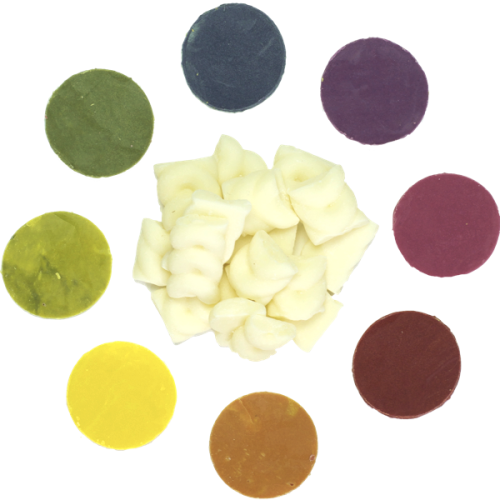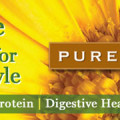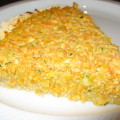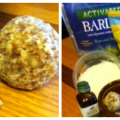
Vegan Beware: Natural Flavorings and Other Hidden Animal Sources in your Food Supply
Finding an ingredient listed as “natural flavorings” may very well be one of the most confusing, misleading and costly issues we face today with truth in labeling practices. In fact, as a Vegan this is especially troublesome because companies are not required to list the source of the flavorings, whether from animal or plant. Here we’ll go over some definitions and then I’ll give some examples of typical natural flavorings and their sources as well as other hidden animal sources in our food supply.
Let’s start with the official definition as stated in the U.S. Code of Federal Regulations (Title 21, Section 101, part 22):
“The term natural flavor or natural flavoring means the essential oil, oleoresin, essence or extractive, protein hydrolysate, distillate, or any product of roasting, heating or enzymolysis, which contains the flavoring constituents derived from a spice, fruit or fruit juice, vegetable or vegetable juice, edible yeast, herb, bark, bud, root, leaf or similar plant material, meat, seafood, poultry, eggs, dairy products, or fermentation products thereof, whose significant function in food is flavoring rather than nutritional”
Both artificial and natural flavors are made by flavorists in a laboratory by blending either “natural” chemicals or “synthetic” chemicals to create a desired flavor and as you can imagine, it truly is a science. Gary Reineccus, a professor in the department of food science and nutrition at the University of Minnesota, says that the distinction between natural and artificial flavorings is based on the original source of these often identical chemicals. Natural flavorings basically just means that before the source went through many chemical processes, that it originally came from a natural source as opposed to artificial which has no natural origin. So, if it came from nature, then is it natural and if its natural does that translate to better for you than it’s artificial cousin? Not always.
Let’s take a look at some examples.
 Wine
Wine
Wine clearly comes from grapes. Grapes come from a vine. So, should we assume therefore that it’s Vegan? Nope. According to research conducted by the Vegetarian Journal, a clarifying or fining agent makes wine clear by removing proteins from the wine. Depending on the type of wine and the desired flavor, different types of proteins are used. Some clarifiers are animal-based, while others are earth-based. Common agents include egg whites, milk, casein, gelatin and isinglass (prepared from the bladder of the sturgeon fish). Bentonite, a clay earth product, serves as a popular fining agent. The main problem here is that the ingredient list (if one even exists on the label) will not state the clarifying agent as an ingredient because it is removed from the final product. Some consumers might assume that if a wine is Kosher that it ensures that animal-based clarifying agents are not used but this is not so. The Union of Orthodox Jewish Congregations stated that all their Kosher certified American-made wines do not currently use gelatin, isinglass or egg whites. As far as international Kosher wines go, the Orthodox Union states that wine could theoretically be certified even if egg whites or gelatin were used because they are removed from the final product. If in doubt about your favorite wines, contacting the company directly seems to be the only way of knowing for sure.
Castoreum
This chemical is derived from a gland taken out of beaver and is located very close the beaver’s anus. I know it may be hard to believe but after a lot of processing, it is considered a legal “natural flavoring” and will be listed as such in an ingredient list. Common foods that might contain castoreum are raspberry, strawberry and vanilla flavoring, ice cream, soda and yogurt. Below you’ll find a list of reported foods and beverages containing castoreum extract according to Fenaroli’s Handbook of Flavor Ingredients published in 2005:
Reported Uses PPM (parts per million) (Fema* 1994):
| Food Category | Usual | Max |
| Alcoholic Beverages | 79.59 | 93.69 |
| Baked Goods | 62.28 | 68.47 |
| Gelatins, Puddings | 43.58 | 47.34 |
| Soft Candy | 37.28 | 44.10 |
| Frozen Dairy | 24.39 | 26.26 |
| Nonalcoholic Beverages | 24.21 | 29.77 |
| Hard Candy | 24.17 | 24.17 |
| Chewing Gum | 18.60 | 42.09 |
Carmine, aka Natural Red #4
Some of you may recall the media frenzy around Starbucks just a few months ago when a certain Vegan journalist got a tip from one of their employees that they had replaced an artificial coloring agent with Carmine in their Strawberry Frappuccino’s. Natural Red #4 is made from the cochina beetle. These beetles are dried, ground up, processed and added to foods that are designed to have a red coloring or food that is supposed to be red but lost its coloring during processing. To their credit, Starbucks responded by removing Carmine and replacing it with tomato extract the following month.
Chewing Gum, Maple Syrup and E numbers
Most chewing gums innocuously list “gum base” as one of their ingredients, masking the fact that petroleum, lanolin, glycerin, polyethylene, polyvinyl acetate, petroleum wax, stearic acid (stearic acid is used as a binder in foods and its source may be either animal or vegetable. It is also used in butter flavoring, vanilla flavoring and candy). Furthermore, many brands list glycerin and glycerol as ingredients, both of which can be animal derived.
Maple syrup is sometimes treated with a very small amount of animal fat, butter or cream to reduce foaming but most modern producers use synthetic compounds according to the Vegetarian Resource Group. Basically, if you want to know then ask the company what kind of defoaming agent they use.
With so many European Happy Cow readers(or travelers to this area of the world), we thought it would be prudent to cover the issue of E numbers on ingredient lists. Here are the numbers Vegans will want to avoid:
- E120-cochineal(red food coloring made from crushed beetles
- E542-edible bone phosphate
- E631-sodium 5’-inosinate
- E901-beeswax
- E904-shellac
- E920-L-cysteine hydrochloride
A Few Concluding Comments
- Should a Vegan always assume that if a company lists “natural flavorings” that they are doing so because they have something to hide? Although some, in fact, do not want it publicly known that they’re using crushed beetles or beaver glands, others may simply want to protect their recipe from being duplicated by the competition.
- I’ve seen “natural flavorings” listed on everything from Monster Energy to Quaker Oat Bran Cereal to Earth Balance butter spread and everything in between. I say this because you could honestly make yourself nuts over what’s lurking around in your packaged food and drink. Rather than getting overly obsessed about it, avoid purchasing a lot of pre-packaged, processed foods and for the ones you really love, call the company.
- Looking for natural plant-based food coloring? Here’s a great site to check out: http://www.chocolatecraftkits.com/shop/index.php?main_page=index&cPath=74
- While I don’t think companies should have to divulge specifics of their natural flavorings, I do think they should state whether the natural flavoring is from a plant or an animal.
Resources
- Frequently Asked Questions-FOOD INGREDIENTS-The Vegetarian Resource Group. http://www.vrg.org/nutshell/faqingredients.htm
- Why is Wine so Fined? By Caroline Pyevich Vegetarian Journal, Jan/Feb 1997 Vol. XVI, Number 1. http://www.vrg.org/journal/vj97jan/971wine.htm
- Food Q and A: Just What is Natural Flavoring? By Phil Lempart. http://www.wnd.com/2011/07/327625/
- http://www.monsterenergy.com/products/monster-energy/
- http://articles.latimes.com/2012/apr/19/business/la-fi-starbucks-bug-color-20120420 Starbucks to Drop Beetles from their Menu, The Los Angeles Times.
by Melissa Sanborn of Nutritional Brands, PureVegan







6 Comments
Chia (324 comments)
June 8, 2012 at 1:59 pmThank you for sharing and bringing attention to this subject. Hidden ingredients and so-called “natural” flavors are pervasive in conventional foodstuff and in processed foods.
Everyone beware!
webmaster (15 comments)
June 8, 2012 at 2:00 pmThe key to better eating is to READ THE LABELS on the food you buy.
RebeccaEvans (2 comments)
June 10, 2012 at 7:51 pmThe Starbucks issue never bothered me, because I think their removal of petroleum food coloring a couple of years ago is admirable, as petroleum additives are bad for everyone, not just the animals they’re tested on (Petroleum dyes red 40, yellow 5 & 6, Blue 1 &2, Green 3 are not vegan either). But I understand how many people with special dietary and religious considerations were very, very unhappy. I started a Twitter #DitchTheDyes campaign, encouraging people to find out which companies use fake additives, tweet questions and concerns to the country’s largest food manufacturers, and to also “vote with your dollars.” I blog about our own problems with food coloring and fake flavorings (like “Vanillin – made from paper mill sludge) at http://www.DieFoodDye.com and have a Facebook page where dye-curious folks can come get support and answers from experienced dye-free people. ~Rebecca, “Die, Food Dye!”
RebeccaEvans (2 comments)
June 10, 2012 at 7:51 pmThe Starbucks issue never bothered me, because I think their removal of petroleum food coloring a couple of years ago is admirable, as petroleum additives are bad for everyone, not just the animals they’re tested on (Petroleum dyes red 40, yellow 5 & 6, Blue 1 &2, Green 3 are not vegan either). But I understand how many people with special dietary and religious considerations were very, very unhappy. I started a Twitter #DitchTheDyes campaign, encouraging people to find out which companies use fake additives, tweet questions and concerns to the country’s largest food manufacturers, and to also “vote with your dollars.” I blog about our own problems with food coloring and fake flavorings (like “Vanillin – made from paper mill sludge) at http://www.DieFoodDye.com and have a Facebook page where dye-curious folks can come get support and answers from experienced dye-free people. ~Rebecca, “Die, Food Dye!”
Marthaeo (1 comments)
June 16, 2012 at 7:17 amThis is a great article. I posted a link to it on my blog http://veganfit.blogspot.com
jive (8 comments)
July 15, 2012 at 10:22 pmExcellent. Something every veg should read.